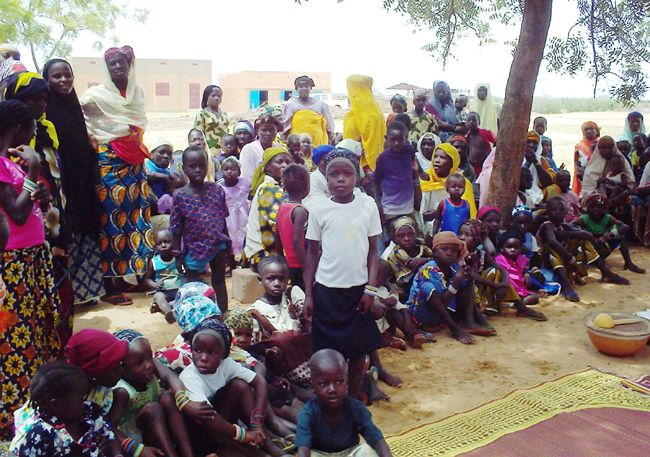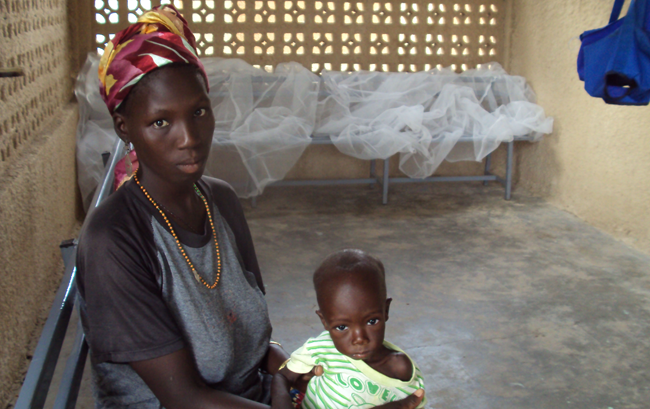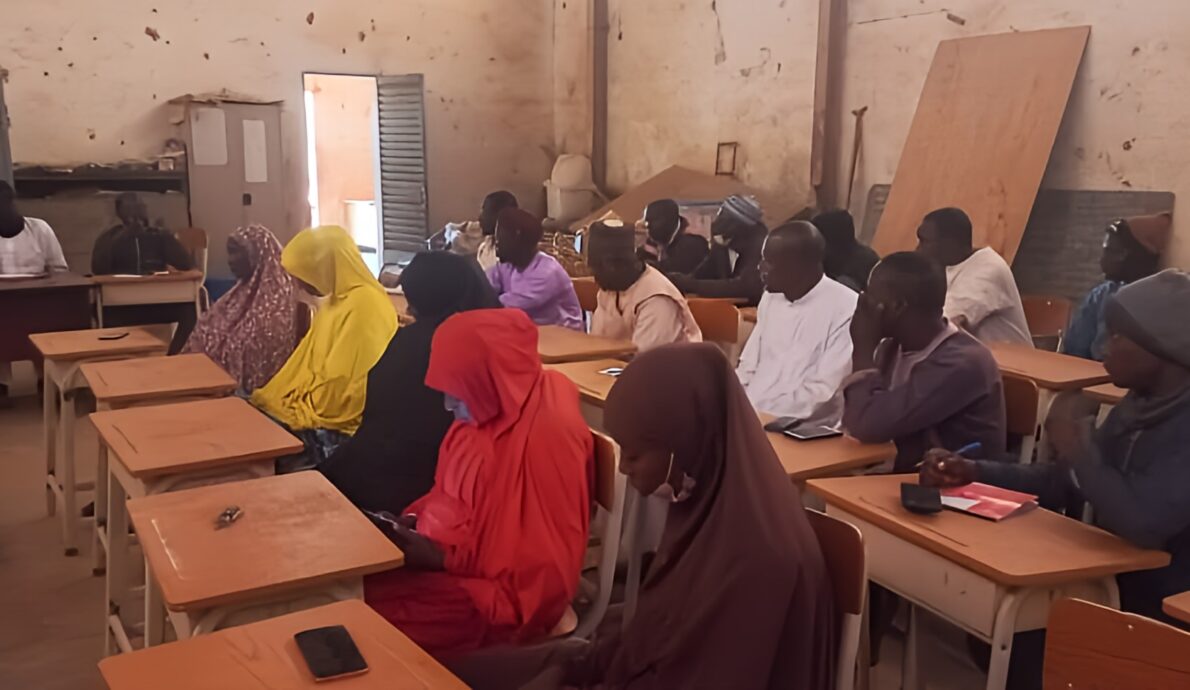
Lucie is a Senior Programs Officer with Counterpart International, supporting our program in Niger.
Lucie Amadou has been at Counterpart for almost a year supporting our Participatory Responsive Governance (PRG) program in Niger, funded by the U.S. Agency for International Development (USAID). Lucie was born in Niamey, Niger and lived there until she was 13 years old, when she moved to the United States. After getting the chance to intern with the Millennium Challenge Corporation in Niger during graduate school, Lucie has supported development programs in Niger for the past four years.
In December and January, Lucie traveled to Niger to support the PRG program, assisting staff in identifying champions for reform in the health and education sectors, and to help train local partners. During her trip, Lucie had the chance to meet with and hear the stories of some amazing women fighting to improve their lives and those of their families. Leading up to International Women’s Day, we sat down with her to learn a little more about the lives and struggles of women in Niger.
1. What role do women play in Nigérienne society?
During my childhood and early career in Niger, I heard so many stories from women about the difficult personal choices that they’ve had to make because of their role in society. Women in the Sahel can have a lot of influence, and yet they are “unrecognized providers.” They contribute substantially to the finances of the household but don’t participate in traditional business sectors, so their contributions are not counted. For instance, many women in the Sahel support their families by selling food that they prepare in their homes. Programs that focus on giving women better access to education or job training ultimately give them more options to support their families, and I’m proud to play a part in that.
Despite an increase in programs like Participatory Responsive Governance, women are still represented in much smaller numbers than men in the traditional workforce. This is due in part to the literacy rates in Niger, which are much lower among women than men. There are education programs in place, but a lot of this inequity stems from the common practice of young girls leaving school very early to get married.
2. Let’s talk about that. Early marriage of young girls is a common issue in the region. What are the driving forces behind this practice in Niger?
Early marriage in Niger has been an issue for a long time. In Nigérienne society, marrying off a daughter provides an extra boost of income in the form of a dowry. It is also commonly believed that a married woman will continue to support her family even after she is married, but this time with the added benefit of her husband’s income. In a country where the average number of children is 7 children per woman and polygamy is the norm, it isn’t uncommon for families to have as many as 28 children. Marrying off a daughter translates into one less mouth to feed.

It has been proven time and again that when a woman receives a higher level of education, it delays her age of marriage and the birth of her first child. On this last trip, I had an interesting conversation with a house cleaner about his 15-year-old daughter, Fatima.
3. Tell me more about Fatima. How do you see Counterpart working to protect women and girls like her?
Fatima is only in 10th grade but her father has already received many requests for her hand in marriage. Some of these requests come from close family friends, and there is extreme pressure on him to accept a proposal so it isn’t seen as an insult to the other families. Keeping his daughter in school has given him the opportunity to say no to her suitors while saving face within the community. That said, this seems like a temporary solution as there are no teachers in his village and his daughter has to travel far to attend school. Between the added pressure from his community to marry her off, and his concerns for her safety when she travels alone to school each day, he does not know how much longer he can avoid accepting a marriage proposal. This story is an example of exactly why I think Counterpart’s work is so essential.
We’re working with local partners to solve the issue of the lack of teachers in certain regions of the country. We’re improving the human resources process throughout the education sector, ensuring that there will be enough teachers available in each village school, increasing the chances that girls will stay in school longer. Placing more teachers in the schools that need them will allow girls like Fatima to continue their education, delay their marriage, and increase their chances of having meaningful employment and helping their family in the long-term, which will help to break the cycle of early marriage. I was fortunate enough to grow up in a family that supported me and valued my education, and I always knew that I wanted to give back and help other girls in Niger that didn’t have that kind of support. I’m lucky that Counterpart lets me do just that.
4. Are women active in politics? How do laws in Niger protect the rights of women?
In Niger, there is definitely a shortage of women in leadership positions. There are women in the government but the percentage is considerably smaller than it ought to be. Unfortunately, there is also a lot of confusion around the protections that the government provides to women. Niger recognizes several forms of law. Per the constitution, there is statutory law, customary law, and religious (Islamic) law. In practice, some of these laws contradict each other.

Despite more than a decade of work to change policy, the law and government institutions are failing to protect women in terms of divorce, inheritance, child custody, and other family issues. Even worse, the government supports “repudiation,” a traditional practice that allows a husband to renounce his wife and marriage by merely saying “I divorce you.”
While there still remains a lot of work to do, there has been progress. Counterpart’s project is about working with stakeholders to ensure that the needs of the most vulnerable people in Nigérienne society are met.
5. What do you think is special about Counterpart’s work in Niger?
I am excited about Counterpart’s vision in Niger because I have seen firsthand the difference an empowered person can make in a community, and how just one person can help inspire a whole family to improve their lives. RPG is USAID’s foremost program in Niger. It uniquely focuses on searching for solutions in between government and citizens, prioritizing participation, collective action and mutual accountability. Our work is more likely to be sustainable over the long-term because we have the buy-in of so many partners across a variety of sectors, and I’m proud to be a part of helping improve the lives of people across Niger through our work.




